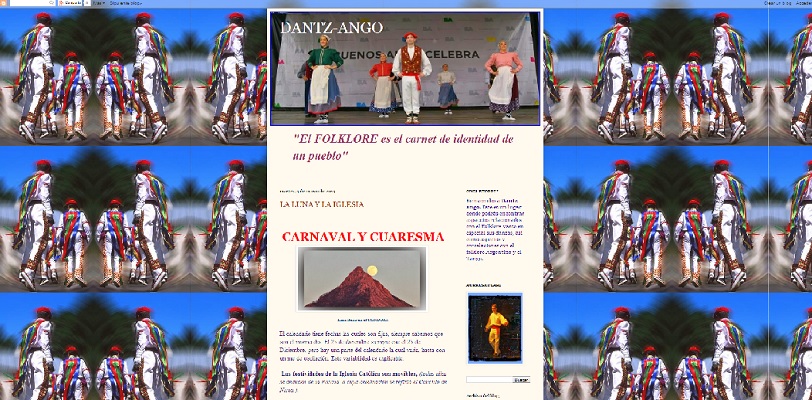basque heritage worldwide

03/05/2014

ADVERTISING
Buenos Aires, Argentina. Once again, new technologies have become an efficient way to share experience and knowledge. That is how dantzari Aitor Alava sees it. He worked a few years ago with “Ezker Airian,” and now provides a new blog, “Dantz-ango” (a mixture of the words dantza, Basque for dance, and tango)
With the focus on typical dances of the Basque Country, but also on those that were born on this side of the Atlantic, in the country and the city, “Dantz-ango” is again the reflection of the life experiences of its creator. “Basque folklore as well as that of Argentina both facets are part of my life right now, and are present on the blog. I think that we can’t look to the future if we don’t know our past, where we came from. We should be up to date on the steps that we have taken, as a country, in history, to continue being a country in the future,” he says.
Contents and Sources
In regards to the page’s content, the sources are various and include references and authorities in the discipline. “What appears on the blog is a summary of the history of dance, with articles, books and reviews of the authors which, in my opinion, better reflect the value, knowledge and dimension of the Basque Country’s folklore.”
“It is ultimately to show the most important values of our culture, past and present/future. I have also included some work that I have done in the context of my current studies as an Argentinean folkdance teacher, and Tango instructor. Also work that I have done for dance courses that I have taught or will teach in Argentina. In the scope of dance it seems that practice will include all the knowledge. Even if it were so, I think that if it isn’t sustained with knowledge and contrasting ideas it isn’t balanced education. Reading is essential to the transmission of dance, to remember and discuss the texts is also a good exercise,” said the Basque professor.
For all Recipients
The “Dantz-ango” blog is presented in a format for all browsers, and is free, and even if it is designed for dancers, the texts are available for anyone interested learning more about the topic, even if only at a theoretical level. The page will be updated daily although, according to its creator, due to his teaching schedule (remember that Aitor is a teacher at the Euskal Echea’s school), he will do it weekly.
“Following a similar play on words on choreography premiered at the 2012 “Buenos Aires Celebrates the Basque Country,” Agur(t)ango, the name of the blog “Dantz-ango” summarizes in 9 letters that blog’s content as well as my life today, my work and my studies,” said Aitor Alava.
-Dantz-ango can be read here
ADVERTISING
ADVERTISING
ADVERTISING
ADVERTISING
ADVERTISING
© 2014 - 2019 Basque Heritage Elkartea
Bera Bera 73
20009 Donostia / San Sebastián
Tel: (+34) 943 316170
Email: info@euskalkultura.eus